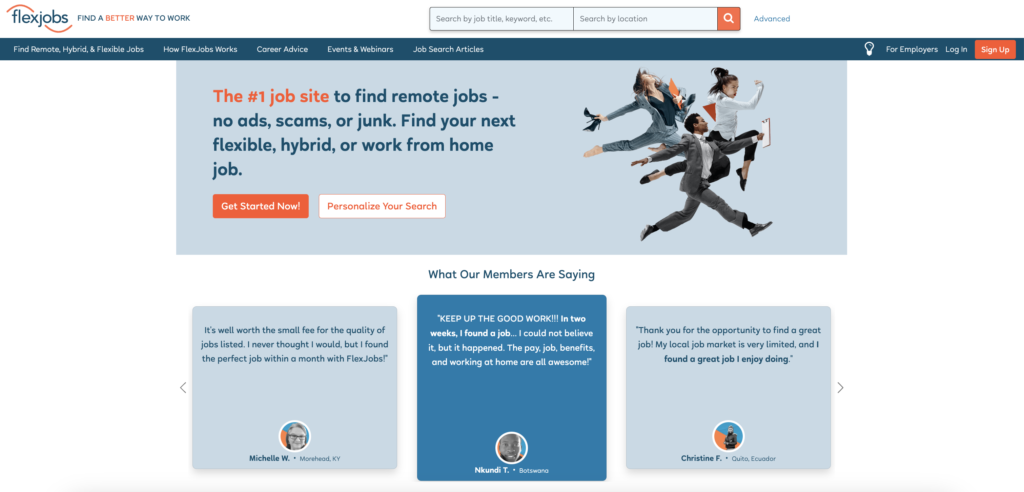Ready to start a great career in affiliate marketing and make money from your laptop? This area offers lots of jobs, like creating content or handling online ads. In this guide, I’ll help you find the right affiliate marketing job and we will cover, what it takes to grow in your career. If you’re eager to start in this exciting field, you’re exactly where you need to be. Let’s begin the journey to find a job you’ll enjoy.
Key Take-Away's
-
Your success in affiliate marketing greatly depends on picking a niche that matches your interests
-
Jobs range from content creation to managing affiliate programs
-
Stay updated with skills in digital marketing, SEO, and analytics
-
A strong personal brand opens doors to job opportunities
-
Building connections and adapting to industry changes are crucial for growth
Post Outline:
1) Finding Your Niche in Affiliate Marketing

Identifying your niche is especially important when looking for affiliate marketing jobs for beginners. When searching for the right job, it is important to understand the pro’s and con’s of affiliate marketing and to look for opportunities within your niche of interest.
It’s about connecting your passions, whether that’s in beauty, gaming, or health, with roles that resonate with you. For example, if you’re passionate about eco-friendly living, you might excel in marketing green products. Identifying your niche not only makes your job hunt more targeted but also sets the stage for a fulfilling and successful career in an area you love. Let’s explore how to pinpoint the niche that aligns with your interests and skills!
Identifying Your Strengths and Interests
Self-awareness is your greatest tool in your journey to find the ideal affiliate marketing job. It’s about knowing what you’re good at and what you enjoy. Are you a natural at persuasive writing, or do you have a knack for analyzing data? Maybe you’re passionate about health and wellness or have a deep understanding of tech gadgets. Recognizing your strengths and interests helps you find a niche where you can shine. Let’s delve into how to identify these key personal attributes.
3 Steps to Researching Different Affiliate Programs
Suppose you’re seeking a position as an Affiliate Manager and are particularly interested in the technology sector. You start by researching tech companies with established affiliate programs. For instance, you find a fast-growing software company known for its innovative products and strong affiliate network.
- Step 1: You investigate the company’s market presence and discover it has a significant global reach and a positive reputation, indicating stability and growth potential. You also explore their affiliate program’s structure, learning how they manage relationships with affiliates, the tools and support they provide, and their commission models.
- Step 2: Next, you look into their affiliate support systems. You find that they offer comprehensive training and resources for their affiliates, indicating a well-organized and supportive program – a crucial factor for an Affiliate Manager’s role.
- Step 3: You also examine the company’s culture and values, finding that they emphasize innovation, collaboration, and transparency, aligning well with your professional ethos.
By thoroughly researching these elements, you can gauge the potential of working as an Affiliate Manager with this company, ensuring it aligns with your career goals and professional strengths.

2) Where to Find Jobs in Affiliate Marketing
Alongside traditional marketing affiliate jobs, there’s a growing trend in remote opportunities. When searching online job boards and platforms, don’t forget to filter for “affiliate marketing jobs remote” to discover roles that offer the flexibility of working from anywhere.
There are plenty of places to find them. Check out specialized remote job boards such as Flexjobs, LinkedIn, and even company websites. These spots have all kinds of remote affiliate marketing jobs, whether you’re good at making content, running ad campaigns, or planning strategies. There’s something for everyone in affiliate marketing.

Utilizing Online Job Boards and Platforms
Online job boards are treasure troves for job seekers. Here are some key places and tips to guide your search:
- Specialized Job Boards: Websites like Jooble are tailored for affiliate marketing roles. These platforms often list jobs ranging from entry-level to executive positions, offering a broad spectrum of opportunities.
- General Job Portals: Don’t overlook general job search sites like Indeed, Glassdoor, or LinkedIn. They frequently list affiliate marketing positions from a variety of companies. Use specific keywords related to your niche and desired role for effective search results.
- Affiliate Networks: Platforms like ClickBank, ShareASale, and Commission Junction host job postings from companies seeking affiliate marketers. They provide insights into the type of products or services you’d be promoting, which is essential for finding a good fit.
Tips for Effective Searching:
Look for Credibility: Research the company behind each listing to ensure its legitimacy. Check for reviews or testimonials about their affiliate program.
Match Your Skills and Interests: Focus on roles that align with your strengths and areas of interest. This increases your chances of job satisfaction and success.
Network Insight: Tap into your professional network for recommendations or insights about specific companies or job listings.
Leveraging Social Media and Networking
Networking is a powerful strategy in your affiliate marketing job hunt. Here’s how to make the most of these platforms:
- 1. Linked In: The go-to professional networking site, Linked In, is invaluable. Create a compelling profile showcasing your skills and experience in marketing. Regularly post updates and articles related to affiliate marketing to demonstrate your expertise and engage with your network. Additionally, join LinkedIn groups focused on affiliate marketing to connect with industry professionals and discover job opportunities.
- X and Facebook: These platforms are great for following companies and influencers in the affiliate marketing sector. Engage with their content, share your thoughts, and build a presence that highlights your interest and knowledge in the field. Often, job openings are announced on these platforms before they hit traditional job boards.
- Industry Forums and Communities: Websites like Warrior Forum and affLIFT are communities where affiliate marketers gather. These forums often have job listings and are a great place to ask questions, share experiences, and network with peers.
Networking Tips:
Engage Authentically: When networking, focus on building genuine connections rather than just broadcasting your need for a job. Share your experiences, ask insightful questions, and offer help where you can.
Showcase Your Projects: If you’ve worked on any affiliate marketing projects, even
personal ones, share them. This demonstrates the real-world application of your skills.
Stay Updated and Contribute: Keep up with the latest trends in affiliate marketing and contribute to discussions. This establishes you as an informed and active member of the community.
From personal experience, I’ve found that being an active and contributing member of these networks not only helps in finding job opportunities but also in staying informed about the evolving landscape of the industry. Building a strong online presence and network is crucial in this business. Remember, the connections you make today can open doors to opportunities tomorrow.

3) Types of Affiliate Marketing Jobs and Their Roles
Various job roles cater to different skills and interests. Understanding these roles is crucial for finding a job that aligns with your strengths. From strategic planning to creative content creation, each role plays a pivotal part in the success of affiliate campaigns. Let me guide you through some key job types and what to expect from each.
Affiliate Program Manager
The role of an Affiliate Program Manager is crucial in overseeing and driving the success of affiliate marketing strategies. These professionals manage relationships with affiliates, strategize promotional activities, and analyze campaign performance.
An example is a manager at a leading e-commerce platform that significantly boosted affiliate sales by optimizing their program’s structure and incentives, by integrating influencer marketing with traditional affiliate tactics, leading to a 30% increase in program revenue.

- (+) Great impact on business growth and diverse networking opportunities
- (+) High earnings linked to performance

- (-) Demands strong analytical and interpersonal skills and often requires intermediate to advanced experience in digital marketing
- (-) Balancing various stakeholder needs can be challenging
Content Creator/Affiliate Blogger
At the heart of affiliate marketing are affiliate bloggers or content creators. They are crafting engaging content that promotes products or services. An example is a blogger who specialized in tech reviews, significantly increasing affiliate revenue via his own website or by creating content for a SaaS company. He achieves that through detailed, SEO-optimized articles.

- (+) Flexibility to work on diverse topics
- (+) The ability to work remotely

- (-) Requires consistent content creation
- (-) Always staying updated with SEO trends
PPC Specialist for Affiliate Campaigns
As an affiliate marketing PPC Specialist, you focus on creating and optimizing pay-per-click campaigns to drive sales.
Here is an example: A PPC Specialist boosted affiliate sales for a health and wellness brand by driving traffic to affiliate marketers’ platforms. He manages PPC campaigns that direct potential customers to blogs and sites promoting the brand’s products. Successful purchases via these affiliate links generated commissions for the marketers and increased sales for the brand, demonstrating the specialist’s vital role in enhancing the effectiveness of the affiliate marketing ecosystem.

- (+) Excitement of directly impacting sales
- (+) Great for people with analytical minds who are data-driven

- (-) Constant adaptation to changing algorithms
- (-) The job can involve high-pressure scenarios
4) Building a Successful Career in Affiliate Marketing

To build a successful career in affiliate marketing, it’s crucial to grow and adapt continuously. Creating strategies for long-term success, skill development, and personal branding are important to succeed in this career field.
Essential Skills for Advancement
To move up in your affiliate marketing career, focus on a few key skills. First, get good at digital marketing, like understanding SEO and using social media well. Being able to analyze data and know what customers want is also important. Improve your content writing and learn to build strong relationships with other sites. Always keep learning about new trends and technology in marketing to stay ahead in this fast-changing field.
Creating a Personal Brand
Building a personal brand is vital in affiliate marketing. Start by defining what makes you unique and share that through your online presence. Use social media, a personal blog, or a website to showcase your expertise and passion. Share your successes and learnings, and engage with your audience consistently. A strong personal brand makes you more attractive to potential employers and partners and helps you stand out in a competitive field.
Long-Term Career Growth and Opportunities
For long-term success in affiliate marketing, thinking about your career path is important. Keep learning new skills and stay updated with industry changes. Look for chances to take on bigger projects or leadership roles. Networking and building relationships can open doors to new opportunities. Always be open to new challenges and changes in the market. This will help you grow and find exciting opportunities in your affiliate marketing career.
Final Thoughts
Wrapping up, starting a career in affiliate marketing is really exciting and full of chances to grow. Remember, finding the right job, learning new skills, and making yourself stand out are all important. Keep up with the latest trends and always be ready to try new things. This field changes a lot, but that’s what makes it interesting. With hard work and a good strategy, you can do really well in affiliate marketing. So, go ahead and take that first step towards a career that’s not just rewarding, but also keeps you on your toes!

FAQ
What is an Affiliate Marketing job?
In affiliate marketing jobs, you either promote products and earn commissions for sales and leads, or you could manage the whole affiliate program as an Affiliate Manager. If you’re promoting, you’ll be creating content and running ad campaigns. As an Affiliate Manager, you oversee the program, manage relationships with affiliates, and strategize campaigns to help both the company and its affiliates succeed. Both roles involve using tools like social media to reach and engage customers.
Is Affiliate Marketing a Legitimate Career?
Yes, affiliate marketing is a legitimate career. Many individuals and companies successfully earn income through affiliate marketing. It requires dedication, strategic marketing skills, and the ability to build an engaged audience. Like any business, it demands time and effort to grow and become profitable.
How do I Become an Affiliate Marketer?
To become an affiliate marketer, start by choosing a niche that interests you. Then, sign up for affiliate programs in that niche, create content (like a blog, social media posts, or a website), and use your affiliate links to promote products or services to your audience.
How much do Affiliate Marketers Make?
Affiliate marketers’ earnings vary widely, from a few hundred to several thousand dollars monthly. Your income depends on factors like the niche, the effectiveness of your marketing strategy, and the commission structures of the affiliate programs you participate in.
What Work do you do in Affiliate Marketing?
In affiliate marketing, you create content to promote products or services, using affiliate links. This involves researching products, writing reviews or creating ads, optimizing content for search engines (SEO), and engaging with your audience to build trust and influence their purchasing decisions.
How do I Earn in Affiliate Marketing?
You earn in affiliate marketing by promoting products or services through affiliate links. When someone clicks your link and makes a purchase, you earn a commission. Your earnings depend on the product’s price, the commission rate, and the number of successful referrals.





